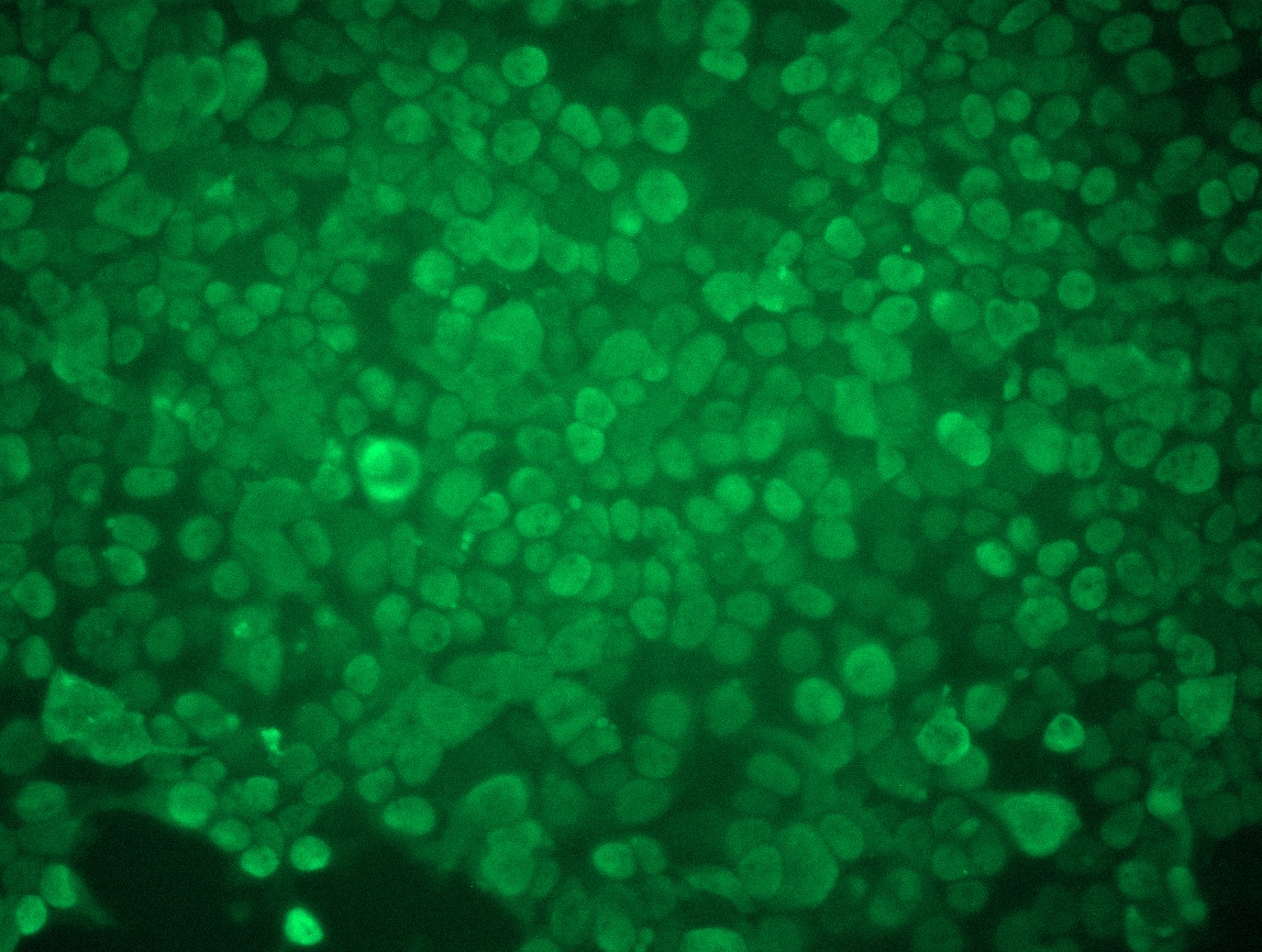Taldo1 (NM_011528) Mouse Tagged ORF Clone Lentiviral Particle
CAT#: MR205018L3V
- LentiORF®
-

Lenti ORF particles, Taldo1 (Myc-DDK-tagged) - Mouse transaldolase 1 (Taldo1), 200ul, >10^7 TU/mL
Interest in protein/lysate? Submit request here!
Frequently bought together (2)
Other products for "Taldo1"
Specifications
| Product Data | |
| Type | Mouse Tagged ORF Clone |
| Tag | Myc-DDK |
| Symbol | Taldo1 |
| Mammalian Cell Selection | Puromycin |
| Vector | pLenti-C-Myc-DDK-P2A-Puro |
| ACCN | NM_011528 |
| ORF Size | 1014 bp |
| Sequence Data |
The ORF insert of this clone is exactly the same as(MR205018).
|
| OTI Disclaimer | The molecular sequence of this clone aligns with the gene accession number as a point of reference only. However, individual transcript sequences of the same gene can differ through naturally occurring variations (e.g. polymorphisms), each with its own valid existence. This clone is substantially in agreement with the reference, but a complete review of all prevailing variants is recommended prior to use. More info |
| OTI Annotation | This clone was engineered to express the complete ORF with an expression tag. Expression varies depending on the nature of the gene. |
| Reference Data | |
| RefSeq | NM_011528.1 |
| RefSeq Size | 1276 bp |
| RefSeq ORF | 1014 bp |
| Locus ID | 21351 |
| UniProt ID | Q93092 |
| Cytogenetics | 7 F5 |
| Gene Summary | This gene encodes a key enzyme of the nonoxidative pentose phosphate pathway that provides ribose-5-phosphate for nucleic acid synthesis and nicotinamide adenine dinucleotide phosphate (NADPH) for lipid biosynthesis. The encoded protein is important for maintaining structure and function of mitochondria. Studies in knockout mice identify that deficiency of this gene product is a cause of sperm dysmotility and male infertility. Deficiency of this protein has also been identified as a cause of hepatocarcinogenesis in mice. Two related pseudogenes have been identified on chromosome 10. [provided by RefSeq, Mar 2010] |
Documents
| Product Manuals |
| FAQs |
| SDS |
Resources
{0} Product Review(s)
0 Product Review(s)
Submit review
Be the first one to submit a review
Product Citations
*Delivery time may vary from web posted schedule. Occasional delays may occur due to unforeseen
complexities in the preparation of your product. International customers may expect an additional 1-2 weeks
in shipping.






























































































































































































































































 Germany
Germany
 Japan
Japan
 United Kingdom
United Kingdom
 China
China


